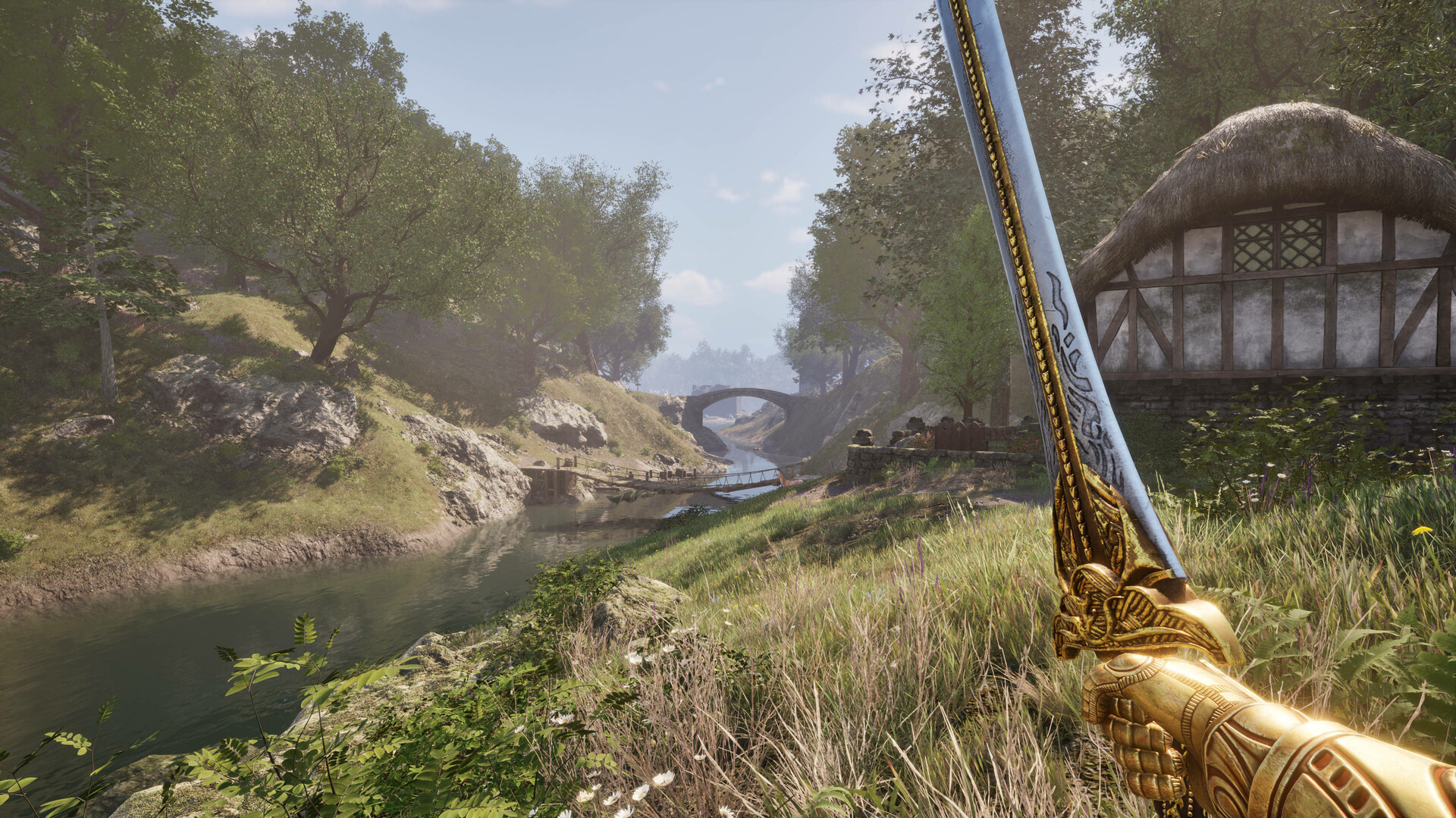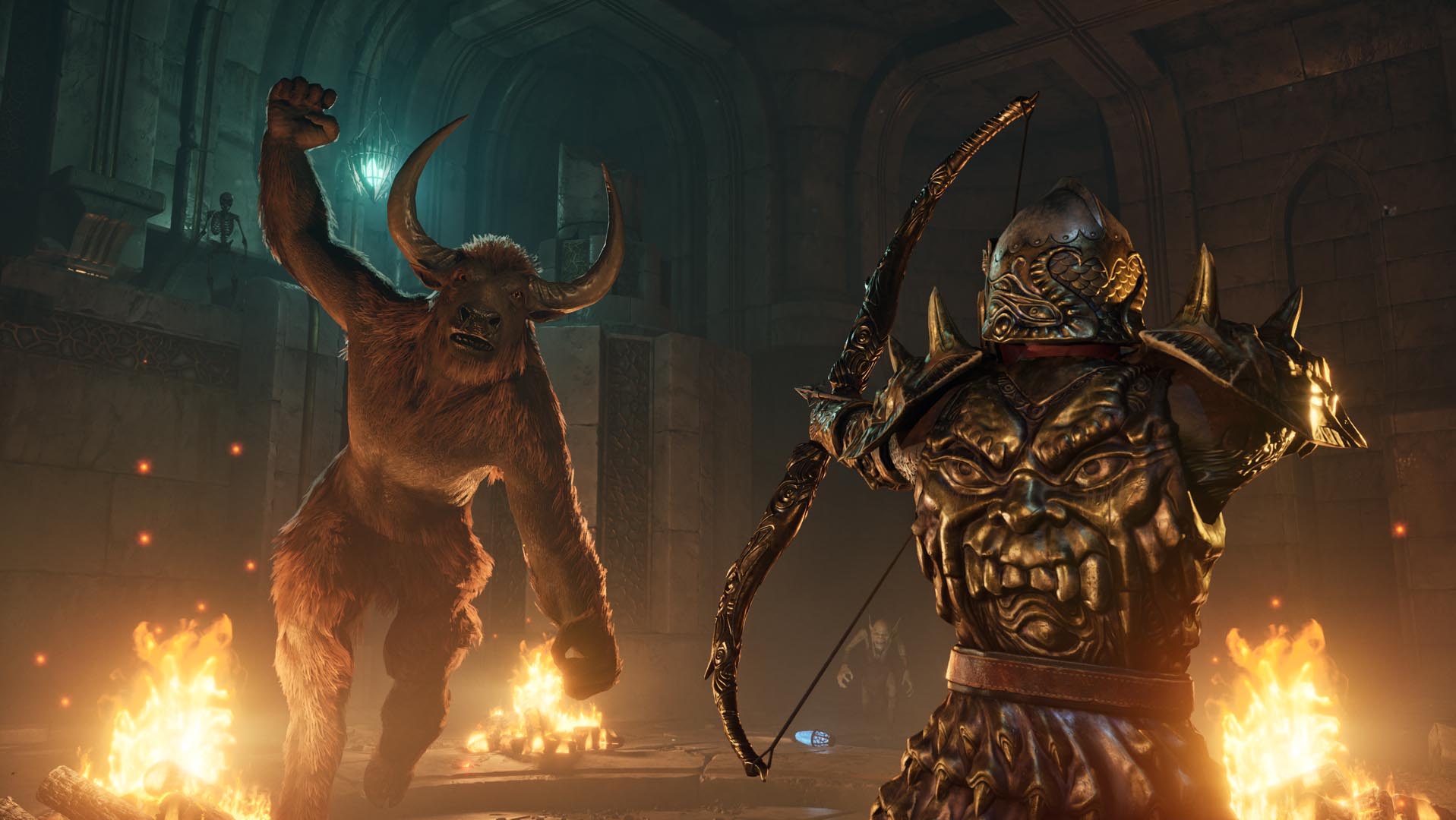
The outstanding critical reception and strong sales performance of The Elder Scrolls 4: Oblivion Remastered since its release last week were not unexpected, nor are they undeserved. Given that the game carries the Elder Scrolls brand and updates a game often regarded as one of the greatest ever made to date, it was likely going to achieve some level of success. However, it’s also accurate to say that if Oblivion Remastered didn’t live up to its potential, it wouldn’t be garnering such praise right now.
The reason for this is because it’s exceptionally well-done. It significantly improves upon the original in numerous aspects, which is quite remarkable given that it’s technically a remaster rather than a full remake (as suggested by its official title). What makes it even more surprising is that it was released at a lower price point compared to typical Elder Scrolls releases, something unexpected from a major franchise. This version skillfully updates an undeniably outdated classic, striking the perfect balance between introducing necessary changes and staying true to the original Oblivion release.
Despite the excitement, I must admit that the experience isn’t flawless. Frankly, achieving perfection in any video game, especially one that’s confined by what its original source material established years ago, is quite challenging. Even focusing on the technical aspects – where we might expect a remastered version like Oblivion Remastered to shine, given its emphasis on upgrades – I can’t help but notice some rough edges. Despite its many commendable features, Oblivion Remastered seems to have a few bumps that need smoothing out.
Has the remastered version of Oblivion retained some of the technical issues that were present in the original game, which is almost two decades old? It seems likely that it has, given that there are still numerous technical hiccups in the current version. For instance, many of the original game’s bugs and glitches have been carried over into the remastered version. You may encounter NPCs walking through walls or each other, hear nonsensical conversations where sentences don’t seem to connect logically, get stuck in the environment, experience issues with lighting, shadows, audio, and UI, see texture pop-in and assets taking too long to load, and notice that draw distances aren’t always as impressive as one would hope. These problems are not exhaustive by any means.
The game’s persistent and substantial performance problems are particularly aggravating. While many of Oblivion Remastered’s other technical imperfections can be overlooked (or perhaps accepted, considering its strong points in other areas), the performance issues are, simply put, inexcusable. From the moment you start playing, you’ll find it hard to miss the frequent lags, freezes, and drops in frame rate. The problem worsens depending on your hardware.

In many computer setups, the game is almost unbearable to play. While occasional, amusing glitches that don’t significantly impact gameplay can be dismissed or even enjoyed, they become a problem when actions like fighting, exploring, or even moving around are as challenging as they frequently are in Oblivion Remastered. This is especially true when the game’s performance issues cause trouble during gameplay.
This situation continues to bring to light numerous irritations among PC gamers. Over time, PC has been plagued with some of the most questionably optimized game releases, a problem that has escalated significantly. To such an extent, it seems like we’re inundated with suboptimal PC releases annually. Whether Oblivion Remastered will join the ranks of the most blatant offenders is yet to be determined, but the launch has been rocky. Fortunately, there’s some comfort in knowing that the game has already initiated post-release enhancements, and given its Elder Scrolls lineage, it’s anticipated to have a long lifespan thanks to an active and thriving modding community.
While it’s unfortunate yet familiar that Oblivion Remastered, being a product of Bethesda Game Studios, has technical issues similar to those seen in their past releases, it doesn’t mean the game’s flaws can be easily overlooked. Despite the obvious improvements made by Virtuous and Bethesda in enhancing various aspects of the original Oblivion experience, there are areas where the remaster seems reluctant to resolve longstanding problems. This duality is indeed accurate.
When Oblivion initially debuted, many players were willing to overlook its technical problems due to the game’s massive scale and ambition at the time, as well as lower general audience expectations regarding polish and optimization compared to today. However, it seems that the Oblivion Remastered has not adequately addressed these modern expectations, which is especially frustrating given that the overall quality of Oblivion Remastered is not typically called into question aside from its technical issues.

Clearly, it’s anticipated that Bethesda Game Studios and Virtuos will persist in refining the game, releasing regular patches and enhancements to smooth out the gameplay and tackle its most pressing concerns. At a minimum, one would hope that the performance glitches – which are currently among the most significant drawbacks for many players (particularly based on the hardware being used) – will be resolved as soon as possible.
For many players, there’s still the curiosity about why the game was released in its present state initially. The unexpected release of Oblivion Remastered, often referred to as a “shadow drop,” means it wasn’t tied to any official release date that Microsoft or Bethesda were striving to hit. Interestingly, we now know this project had been in development for about four years. Considering this timeline, one might anticipate a more refined launch. Let’s hope the rumored Fallout 3 remaster can steer clear of these issues if it indeed is underway as persistent gossip and speculation suggest, given that Fallout 3 is also a notably rough game that could potentially suffer from similar flaws with an updated re-release.
Read More
- We Loved Both of These Classic Sci-Fi Films (But They’re Pretty Much the Same Movie)
- Masters Toronto 2025: Everything You Need to Know
- Street Fighter 6 Game-Key Card on Switch 2 is Considered to be a Digital Copy by Capcom
- The Lowdown on Labubu: What to Know About the Viral Toy
- ‘The budget card to beat right now’ — Radeon RX 9060 XT reviews are in, and it looks like a win for AMD
- Mario Kart World Sold More Than 780,000 Physical Copies in Japan in First Three Days
- Valorant Champions 2025: Paris Set to Host Esports’ Premier Event Across Two Iconic Venues
- Microsoft Has Essentially Cancelled Development of its Own Xbox Handheld – Rumour
- Gold Rate Forecast
- Forza Horizon 5 Update Available Now, Includes Several PS5-Specific Fixes
2025-05-03 07:11